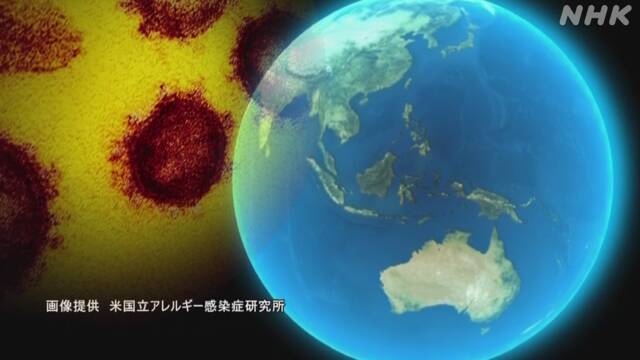It has been three years since the World Health Organization (WHO) declared a public health emergency of international concern in response to the spread of the new coronavirus.
Countries continue to search for ways to relax infection control measures while continuing to be vigilant against the emergence of new mutated viruses.
On January 30, 2020, WHO declared the spread of the new coronavirus a ``public health emergency of international concern''.
Three years later, according to a summary by Johns Hopkins University in the United States, more than 670 million people have been confirmed to be infected with the new coronavirus worldwide, and more than 6.8 million have died.
Around January last year, when the Omicron strain spread around the world, the number of new infections exceeded 2 million per day.
Since then, the number of infected people and deaths has been decreasing worldwide, but many countries no longer strictly confirm the number of infected people, making it difficult to grasp the actual situation.
In addition, China has implemented a "zero corona" policy to thoroughly suppress infections, but after infection control measures were significantly eased last month, infections spread rapidly in various places.
Local infectious disease experts have expressed the view that ``about 80% of the population has already been infected'', and it is possible that more than 1.1 billion people have been infected.
Over the past year, each country has eased infection control measures, such as abolishing the requirement to wear masks outdoors and the restrictions on quarantine after entry into the country.
It's just that the new corona virus has repeated mutation for the last 3 years.
The Omicron strain has also repeatedly mutated, and after the BA.5 that became mainstream in Japan since last summer, the proportion of ``BQ.1'' with further mutations is increasing, and in the United States, it is more infectious. “XBB.1.5”, which may have high risk, is spreading rapidly.
Under these circumstances, it has been pointed out that the ability to monitor the emergence of new mutant viruses is weakening.
As countries explore how to ease infection control measures, WHO Director-General Tedros Adhanom Ghebreyesus said at a press conference on the 24th of this month, "We are clearly in a better situation than three years ago when the pandemic broke out. However, the response in the international community is again under tension," he said, calling for caution again.

